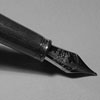Junior Wells
(Dec. 9, 1934 - Jan. 15, 1998)
I ain't feeling too bad
And I don't need no brand-new bag.
By Ken Ficara
Originally published in Bob Howe's Fetish Weather Forecast, January 19, 1998
With these words, on the opening track of his classic first album, Hoodoo Man Blues, Junior Wells declared that blues musicians were not going to sit back and let James Brown have all the fun.
Wells, who died Thursday at 63 years old, broke new ground with the blues harmonica -- an instrument whose players are too often content to imitate rather than create. He took the amplified Chicago sound that Little Walter had developed to keep up with Muddy Waters when he started playing electric blues, and showed how it could hold its own against the charging horn sections and staccato rhythms of R&B.
Blues harmonica wasn't doing that well in the mid-sixties. Little Walter had left his better days behind and was only a few years away from an untimely death in a Chicago street fight. Sonny Boy Williamson II had just died. Young rock guitarists were busy copping licks from blues records, but the harmonica was represented in rock only by the asthmatic puffing of Bob Dylan and John Lennon (Mick Jagger was photographed taking a harp lesson from Junior, but apparently he didn't listen very closely.)
Wells and a few of his contemporaries -- most notably James Cotton, whose early albums for Verve a few years later are some of the best late-sixties blues harp on record -- forged a direct connection between classic blues harp and sixties soul/R&B. He fused the work of his mentor, John Lee Williamson, the king of prewar blues harp whose name Sonny Boy Williamson II appropriated, with the hard-edged funk Brown was developing.
Wells' version of "Good Morning Little Schoolgirl" on Hoodoo Man Blues put the song on a whole different plane. Rather than the sly wink of Williamson's original, Wells delivered the song with a threatening sneer that would make any modern rap musician proud. He did the same with John Lee's classic "Early in the Morning" (not the song by Louis Jordan that begins "Early in the morning and I can't get it right," but the one that starts "When a girl reach the age of eighteen/She begins to think she's grown...")
That connection was completed when Arrested Development sampled a riff from Hoodoo Man Blues on 3 Years, 5 Months and 2 Days in the Life Of.... Characteristically, Wells gave a chunk of his large royalty check to his collaborator, Buddy Guy, who he said had come up with the riff in the studio.
Hoodoo Man Blues was followed by a series of brilliant albums for Bob Koester's Delmark label -- South Side Blues Jam, On Tap. His later albums in the eighties were less successful, with the shining exception of Harp Attack, a collaboration with fellow harp giants James Cotton, Carey Bell, and Billy Branch.
One of his most recent albums, Come On In This House, was nominated for a Grammy. He played with rock stars, contributed a stark cover of "Satisfaction" to the not-a-tribute album of blues stars covering Rolling Stones songs, and has a part in the upcoming Blues Brothers 2000 movie. Already ill with cancer, he was stricken with a heart attack shortly after doing a benefit performance for Johnny Copeland (the blues guitarist who died last year of a heart attack) in September. He was only 63.
I went to this pawnshop downtown and the man had a harmonica priced at $2.00. I got a job on a soda truck .. played hookey from school ... worked all week and on Saturday the man gave me a dollar and a half. A dollar and a half! For a whole week of work. I went to the pawnshop and the man said the price was two dollars. I told him I *had* to have that harp. He walked away from the counter -- left the harp there. So I laid my dollar-and-a-half on the counter and picked up the harp. When my trial came up the judge asked me why I did it. I told him I *had* to have that harp. The judge asked me to play it and when I did he gave the man the fifty cents and hollered "Case dismissed!"
From the liner notes to Hoodoo Man Blues

